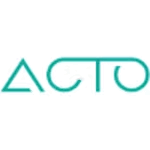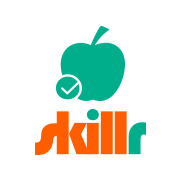Description

ACTO

Study Island
Comprehensive Overview: ACTO vs Study Island
ACTO and Study Island are two distinct educational technology platforms, each with its own primary functions, target markets, market positions, and differentiating factors. Here's an overview based on your request:
a) Primary Functions and Target Markets
ACTO:
- Primary Functions:
- ACTO primarily functions as a digital learning and sales platform targeted at life sciences companies. It helps enhance sales performance and compliance by providing tools for sales enablement, training, and field management.
- The platform offers AI-powered analytics, personalized learning paths, and robust reporting to ensure sales and medical teams have the necessary knowledge and compliance required to meet industry demands.
- Target Markets:
- Its main clients are pharmaceutical, medical device, and biotechnology companies looking to improve their omnichannel sales strategies and training regimens for their field teams.
Study Island:
-
Primary Functions:
- Study Island is an online educational platform designed to provide standards-based instruction, practice, testing, and real-time reporting for students from kindergarten through 12th grade.
- It helps teachers administer formative assessments and track student progress against state-specific standards.
-
Target Markets:
- Primarily targets schools and educational institutions, teachers, and students within the K-12 education system. Study Island is notably popular in the United States, where state-specific standards are a focus.
b) Market Share and User Base
ACTO:
- As a niche platform serving the life sciences industry, ACTO's market share is confined to this vertical and thus significantly smaller in comparison to general educational platforms. The user base typically consists of sales and marketing professionals within the life sciences realm, focusing on corporate learning and operational efficiency.
Study Island:
-
Study Island enjoys a broader user base within the educational sector, especially in the U.S., where there is a large number of schools adhering to state educational standards. Its presence is more pronounced among educational platforms due to its focus on K-12 learning and the integration of state-specific standards.
-
The platform's market share comparatively benefits from being part of a wider suite of educational tools under Edmentum, a major provider of K-12 education solutions.
c) Key Differentiating Factors
ACTO:
-
Industry Focus: Tailored specifically for the life sciences industry, providing specialized solutions for compliance and sales acceleration.
-
AI-Powered Analytics: Utilizes AI to provide insights and analytics essential for optimizing sales strategies and training effectiveness within the life sciences.
-
Sales Enablement: Integrates tools that directly impact sales performance and compliance, areas critical to the pharmaceutical and medical devices sectors.
Study Island:
-
Standards-Based Education: Offers content and assessments aligned with various state standards, emphasizing compliance with K-12 educational requirements.
-
Broad Educational Reach: Access to a wide variety of subjects from kindergarten to 12th grade allows for a comprehensive educational offering within the K-12 sector.
-
Focus on Formative Assessment: Emphasizes the frequent assessment of student progress through interactive content and immediate feedback systems, allowing educators to make data-driven decisions.
In summary, ACTO and Study Island serve very different markets with distinct functionalities. ACTO's focus is on the life sciences industry with a specialized approach to sales and training, while Study Island caters to the K-12 education sector, concentrating on standards-based learning and assessments. Each platform has carved out its niche based on the unique needs of its respective users.
Contact Info

Year founded :
2022
Not Available
Not Available
Mexico
Not Available

Year founded :
2000
Not Available
Not Available
Not Available
http://www.linkedin.com/company/study-island
Feature Similarity Breakdown: ACTO, Study Island
To provide a feature similarity breakdown for ACTO and Study Island, let's look at aspects such as core features, user interfaces, and unique features:
a) Core Features in Common
-
Educational Content Delivery: Both ACTO and Study Island offer a broad array of educational content, though the focus and target audience may differ. Study Island is known for its K-12 curriculum-aligned content, while ACTO might focus on other educational or professional training areas.
-
Assessment and Testing: Both platforms provide tools for assessing students' understanding and progression through exams, quizzes, or interactive questions. This functionality helps educators track performance and identify areas needing improvement.
-
Progress Tracking and Reporting: These platforms offer features for tracking user progress over time. Teachers and administrators can generate reports to analyze the effectiveness of their instructional strategies.
-
Adaptive Learning: Both platforms may incorporate adaptive learning technologies, tailoring content delivery based on the user’s performance and learning pace.
-
Engagement Tools: Features to increase student engagement, such as gamification elements, challenges, or rewards, are common to both ACTO and Study Island.
b) Comparison of User Interfaces
-
ACTO: The UI/UX may be designed with a focus on adaptability and ease of content delivery across various devices, suitable for corporate training environments or blended learning scenarios.
-
Study Island: The user interface is likely child-friendly, intuitive, and colorful to appeal to younger students while being simple enough for educators to manage content and track progress easily. It may include dashboards designed for teachers, students, and administrators to navigate effortlessly between courses and reports.
c) Unique Features
-
ACTO:
- Advanced Customization: ACTO might offer more in-depth customization options for content creators, allowing them to tailor materials for specific learning paths or business training needs.
- Integration Capabilities: It potentially provides robust integration with other enterprise systems, like HR or CRM systems for continuous professional development.
- Mobile-first Design: If targeting professional development, the design might be heavily optimized for mobile devices to facilitate learning on-the-go.
-
Study Island:
- Standardized Test Preparation: Known for its strong alignment with state-specific standards, Study Island offers targeted practice and preparation tools for standardized tests in the U.S. education system.
- Motivational Elements: It heavily leverages gamification, including badges and leaderboards, specifically tailored for engaging young learners.
- Teacher Resources: Study Island may provide extensive resources for educators, including lesson plans, teaching guides, and professional development materials.
Overall, while both platforms aim to enhance learning experiences, their unique features and interface designs align with their target audiences—ACTO potentially serving more diverse educational and corporate training needs, while Study Island is focused extensively on K-12 education.
Features

Not Available

Not Available
Best Fit Use Cases: ACTO, Study Island
To provide a comprehensive understanding of the best fit use cases for ACTO and Study Island, let's break down each platform and analyze their strengths and ideal scenarios for use.
ACTO
a) Best Fit Businesses or Projects
ACTO is primarily designed for the life sciences industry, with a focus on pharmaceutical, biotechnology, and medical device companies. It is a cloud-based software platform that accelerates knowledge dissemination and compliance for life sciences sales teams and field representatives.
-
Types of Businesses:
- Pharmaceutical companies
- Biotechnology firms
- Medical device manufacturers
-
Ideal Use Cases:
- Training and development of sales and marketing teams in life sciences.
- Ensuring regulatory compliance and streamlined communication across commercial teams.
- Facilitating remote learning and ongoing education for employees engaged in complex, regulated environments.
d) Industry Verticals and Company Sizes
ACTO serves industry verticals that require strict compliance and specialized knowledge transfer, such as pharmaceutical and medical device sectors. It's suitable for both mid-sized companies needing dynamic training solutions and larger enterprises looking to integrate comprehensive sales enablement and training.
Study Island
b) Preferred Scenarios
Study Island is an educational platform aimed at supporting teachers and students in K-12 education. It is designed to help students master state-specific standards through practice and assessment.
- Ideal Scenarios:
- Schools and educational institutions looking for tools to reinforce state standards in practice exercises, tests, and interactive activities.
- Districts seeking to improve student performance and prepare for standardized testing.
- Educational environments that require data-driven insights to track student progress and tailor instruction.
d) Industry Verticals and Company Sizes
Study Island caters specifically to the education sector, predominantly in the K-12 range. It serves individual schools, school districts, and educational organizations focusing on enhancing student performance and standard alignment with state assessments. It can be effectively scaled from single classrooms to entire districts.
Summary
ACTO is best utilized by companies in the life sciences sector needing sophisticated training and compliance solutions, whereas Study Island is ideal for educational environments focused on standard-based learning and assessment in K-12 settings. Each platform caters to its respective verticals by addressing specific industry challenges—ACTO with compliance and knowledge dissemination, and Study Island with educational achievement and standards mastery.
Pricing

Pricing Not Available

Pricing Not Available
Metrics History
Metrics History
Comparing teamSize across companies
Conclusion & Final Verdict: ACTO vs Study Island
Conclusion and Final Verdict for ACTO vs. Study Island:
When comparing ACTO and Study Island, it's vital to assess which product offers the best overall value by examining their pros and cons, as well as considering user needs and scenarios.
a) Which product offers the best overall value?
The determination of the best overall value between ACTO and Study Island largely depends on the user's specific requirements:
-
ACTO: Best for industries that require comprehensive software training platforms with tracking and analytics, particularly within medical and life sciences sectors. Its strength lies in its robust learning management features that cater to regulatory and compliance training needs.
-
Study Island: Provides significant value for educational environments focusing on K-12 standards-based learning, test preparation, and practice. Its main advantage is aligning with state standards and offering gamified practice resources for students.
In terms of overall value, if your priority is regulatory compliance and in-depth analytics in specialized fields, ACTO is more valuable. However, for educational purposes centered around standard-based learning and classroom support, Study Island is a better choice.
b) Pros and Cons of Choosing Each Product
ACTO:
Pros:
- Tailored solutions for life sciences and pharmaceutical sectors.
- Strong emphasis on compliance and regulatory training.
- Comprehensive analytics and reporting capabilities.
- Customizable learning management features.
Cons:
- May not be as cost-effective for small organizations with limited budgets.
- Niche focus might not cater well outside specialized industries.
- Learning curve for advanced features might be steep for newcomers.
Study Island:
Pros:
- Extensive alignment with K-12 educational standards across various states.
- Offers engaging, gamified learning experiences for students.
- Provides actionable insights for educators to track student progress.
- Cost-effective for schools with flexible pricing options.
Cons:
- Primarily focused on K-12 education, which can limit applicability in other sectors.
- Reliance on internet connectivity can be a barrier in areas with poor access.
- Content and features might not cater to advanced or specialized learning beyond the standard scope.
c) Recommendations for Users Trying to Decide Between ACTO vs. Study Island
-
Identify Your Needs: Begin by assessing the core needs of your organization or educational institution. If you are operating within a highly regulated industry such as pharmaceuticals, ACTO would likely serve you better with its emphasis on compliance and deep analytics. Conversely, if you are in the education sector focusing on K-12 learning enhancement, Study Island is more suitable.
-
Consider the Audience: For organizations dealing with professional training and detailed compliance beyond standard educational requirements, ACTO’s targeted features are more beneficial. Study Island is more advantageous for educational environments where student engagement and meeting educational standards are primary concerns.
-
Evaluate Budget and Resources: Assess your resource allocation for either platform. Study Island may offer more flexible pricing scales conducive for educational budgets, while ACTO’s packages could be more demanding, justified by its advanced features for specialized domains.
-
Trial and Feedback: Take advantage of any trial periods offered by the platforms to gather feedback from your users or educators. Understanding how either tool integrates with existing workflows or curriculums can be crucial in the decision-making process.
Ultimately, the best choice comes from aligning the platform's strengths with your specific operational or educational goals, ensuring that the selected tool effectively enhances productivity, learning outcomes, or regulatory compliance.
Add to compare
Add similar companies



